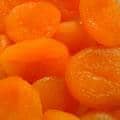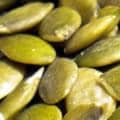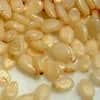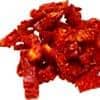

Taking our iron pills during pregnancy is the absolute pits. If we are already fighting morning sickness this lovely little black pill can send us right back into the bathroom. Or the possible constipation? Ugh. So what is the big deal with iron?
"Iron is an essential mineral used to transport oxygen to all parts of the body. A slight deficiency in iron causes anemia (fatigue/weakness)"
"While iron is better absorbed from heme (meat) sources, non-heme (plant) iron is better regulated causing less damage to the body. The current recommended daily allowance for iron is 18 milligrams (mg)."
On a personal level, my family's dietary goal is to consume a produce based, whole food diet. When there isn't time to explain our eating habits we usually just say that we are mostly vegan. Finding all of the different resources for iron has been important for us as we have made this change. As a mother of four awesome kids I need all the energy I can get!!
Follow this link Top 10 Foods Highest in Iron
When trying to up our iron intake it is important to make the most of the foods that we are eating by:
- Pairing foods high in vitamin c and beta carotene with heme and nonheme iron foods
- Consuming heme iron at the same time as nonheme
- Avoiding foods high in tannis, calcium, polyphenols and phytates.
- Avoid milk and antacids when consuming iron rich foods
- Avoid high fiber foods such as whole grains, raw vegetables and bran (Eat these in a different meal to help keep you regular)
- Avoid caffeine
- Take an hour after consuming foods. The more empty your stomach the better. (This is a hard one!)
- Avoid consuming the same foods as you do when eating iron rich foods
- Consider a liquid iron supplement mixed with a fruit juice sipped through a straw.
- Learn about the different types of supplements because they are not all created equal. Anemia.org has some great information.
The Office of Dietary Supplements says," Meat proteins and vitamin C will improve the absorption of nonheme iron. Tannins (found in tea), calcium, polyphenols, and phytates (found in legumes and whole grains) can decrease absorption of nonheme iron. Some proteins found in soybeans also inhibit nonheme iron absorption. It is most important to include foods that enhance nonheme iron absorption when daily iron intake is less than recommended, when iron losses are high (which may occur with heavy menstrual losses), when iron requirements are high (as in pregnancy), and when only vegetarian nonheme sources of iron are consumed" Link to article
Credit for pictures and info given to:
HealthAliciousNess .com
Nutrition Simplified






No comments:
Post a Comment